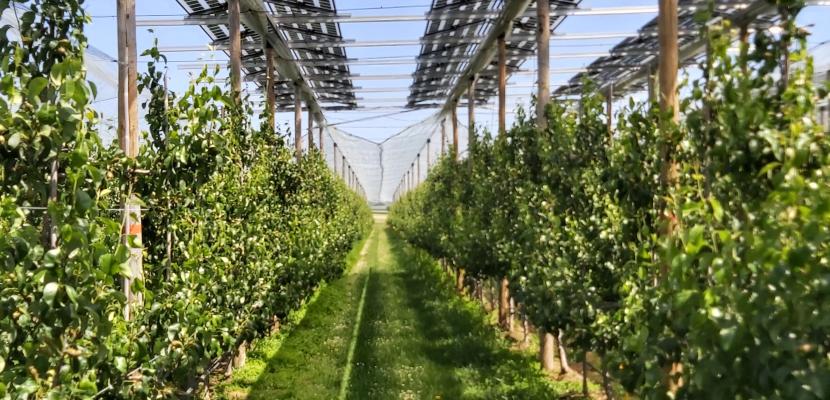
Agrivoltaics research-demonstration project.

About this good practice
To the researchers of the KU Leuven, the concept of agrivoltaics was known from abroad, but the technology was still completely unheard of in Flanders. Furthermore, there was the question of whether this technology could also be successfully implemented in Flanders. To answer these questions, the Flemish government funded the “Tetra Agrivoltaics” project in which several small-scale demo agrivoltaics setups were built at different locations.
The purpose of building these small-scale test setups was to investigate the following research questions:
- Which agrivoltaics systems perform the best in Flanders (elevated, interspaced, tracking, …).
- Which techniques are most effective for constructing these agrivoltaics setups, and are any Flemish companies already involved in this field?
- Which agrivoltaics systems are accepted by the local communities?
- How do different types of crops react to the reduced amount of light in the climate of Flanders/Belgium?
To promote the concept of agrivoltaics and share the research project’s results with stakeholders, demonstration days were organised at the various test sites. The demo days were primarily targeted at farmers and companies who install solar panels, but they also welcomed and attracted participation from investment companies, policymakers, energy companies, and local citizens.
Resources needed
The project had a total budget of approximately €340,000. Around €200,000 was allocated to personnel costs, covering the salaries of two full-time researchers for two years, while approximately €140,000 was dedicated to other expenses, including the installation costs of the demonstration setups.
Evidence of success
The research project provided a lot of valuable results, making it good practice:
• Several academic papers discussing the results of agrivoltaics in Flanders
• Local companies that started offering their own agrivoltaics system in Flanders and abroad.
• Political discussions (on the legislative framework) at different levels that were initiated.
• Four different agrivoltaics test set-ups built and operational, that can be used for field visits for further dissemination or training.
Potential for learning or transfer
Building an agrivoltaics setup is a very local thing, and even though much can be learnt from experiences abroad, building several small-scale test set-ups in a new region is certainly valuable. In fact, in every region/country, certain aspects related to agrivoltaics systems may be completely different such as the type of crops grown, the amount of solar radiation, shape of the landscape, cultivation of the landscape, social acceptance towards renewable energy, local farming practices,... Building, testing out and monitoring several small-scale set-ups can therefore address some of these uncertainties in this way to avoid making the same mistakes in future, large-scale projects.
Further information
Website
Good practice owner
You can contact the good practice owner below for more detailed information.
KU Leuven Leuven Research & Development
